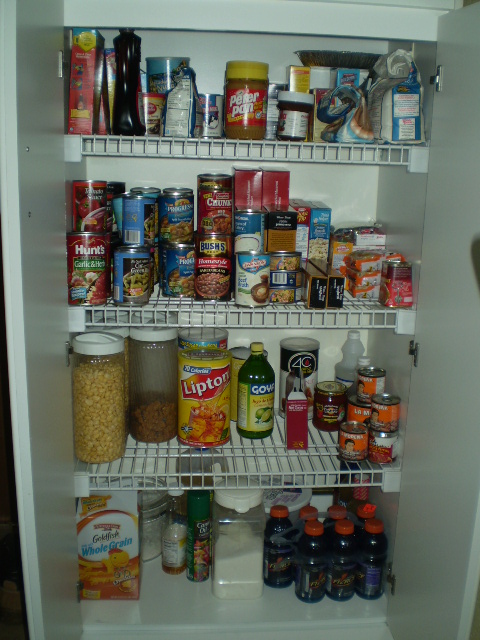Many people have heard that buying in bulk is an intelligent move financially. However, there are situations where bulk buying isn’t a good choice. If you’re wondering, “At what point does buying in bulk stop being a wise spending choice?” here are some situations where bulk buying isn’t a good idea.
When You Can’t Use It All in Time
When you buy in bulk, you only experience a savings if you can use enough of the product before it expires or goes bad to make the investment worthwhile. That’s why most people only bulk buy non-perishables (or, potentially, perishables that can be frozen, canned, or otherwise stored long-term), as their long shelf-life makes it easier to use everything purchased before the quality declines.
If you’re thnking about purchasing a large quantity of an item, consider whether you’re likely to use it all before quality or safety becomes an issue. If not, then choose a smaller quantity. For situations where you’re not sure, then going with a smaller size is potentially a good idea initially, allowing you to genuinely gauge how much you’ll use the item before committing to a larger size.
If You Like a Lot of Variety
Buying in bulk usually means you’re using the exact same product a lot. For many people, that’s not an issue. That’s particularly true for items like rice, pasta, or other pantry staples.
However, if you enjoy a significant amount of variety in a product category, bulk buying may feel very restrictive. Often, it’ll only provide value if you’re going to use the item repeatedly over a period. If that’s not appealing, you may not use enough before the quality declines to make the bulk purchase worthwhile. Alternatively, you may find your quality of life declines because you’re forcing yourself into an undesirable routine. In either case, that could make buying in bulk unwise.
You’ve Never Tried the Product
The problem with buying a product you’ve never tried in bulk is that there’s a chance you won’t like it. For example, maybe you thought you’d enjoy that flavor of oatmeal, but it turns out you find it unappealing, or perhaps you wanted the benefits a shampoo bottle listed, but when you use it, you realize it falls short of the claims.
In cases like those above, you may have a large quantity of a product that you don’t want to use. Then, you’re stuck using an item that’s not appealing or doesn’t meet your needs – which is unpleasant – or you’re ending up throwing it away, making the purchase a waste of money.
As a result, it’s usually best to start with a smaller size initially. Then, you can decide if you like it before you buy it in bulk.
Storage Is an Issue
Bulk buying means you have a lot of a particular product, so you’ll need a place to keep it. While that’s not always an issue, if you’re short on storage, you might find yourself in a bit of a predicament once you get the product home.
Before you shop for large quantities of an item, consider where you’ll keep it. If you can’t find a logical location, then you may want to stick with a size that works for the space you have instead.

Another point you need to factor in is whether you’ll need different containers to store a bulk purchase or if the product can remain in its original packaging. For example, if you buy a massive value pack of chicken breasts, will you need to open that package and break it down into smaller quantities before freezing? If it’s the latter, will you need to pay for freezer storage bags or vacuum seal bags? That way, you can figure out if investing in storage solutions offsets the savings you get from buying in bulk.
You Won’t Offset a Membership Fee
While many stores offer large sizes of a variety of products, many bulk purchases require memberships to a warehouse club or similar store. As a result, you have to figure out if you’d save enough bulk buying from that location (as well as making other purchases or using the available member-only services and perks) to justify the fee you need to cover to become a member. If not, then you at least need to rethink where you’ll shop in bulk. Otherwise, stick with sizes that are available at stores that don’t have membership fees.
Doing Math on the Fly Is Unappealing
Generally speaking, buying in bulk usually means paying less per ounce, serving, or use than if you chose a smaller size. However, there are situations where larger quantities actually cost more per ounce, serving, or use. Essentially, you don’t want to assume that you’re getting a deal because there’s always a chance you’re not.
So, if you’re considering buying items in bulk, you need to be comfortable with doing math while you shop. Usually, it’s pretty straightforward to do. You simply divide the cost of the package by the number of ounces, servings, or uses in it. Then, do the same with other sizes to determine which is really giving you the best bang for your buck.
The issue here is whether you want to do that math when you shop. If the idea of breaking out a calculator and working it out is unappealing to the point where you won’t do it, then you may want to skip bulk buying.
Your Shopping Budget Is Tight
When you buy in bulk, there’s a good chance that you’ll save overall for the quantity you’re receiving. However, the upfront price is higher than if you purchased a smaller quantity. If your budget is tight, that could make bulk buying challenging to support. You may have to forgo other items you need just to make a bulk purchase without breaking the bank.
Now, the worst of this usually happens early in a bulk buying journey, as your future spending may decrease as you work through the products you currently have at home. Plus, you can spread out bulk purchases – such as by choosing one specific staple each shopping trip – instead of bulk buying multiple items at once.
Still, you do need to determine if bulk buying means stretching your budget too thin. If that’s the case, it may not be worth the sacrifices you’d have to make to pull it off.
You’d Use a Credit Card (and Carry a Balance)
For households with tighter budgets, it may be tempting to use a credit card to purchase an item in bulk to capture the potential savings. The issue is that any interest charged on that balance could quickly offset what you saved with a bulk purchase. If you’re carrying a balance, then bulk buying is costing you money over time, and that’s never ideal. As a result, if you’re only able to buy large quantities using credit and would carry a balance but could get a smaller amount with cash, going with the smaller option is potentially more cost-effective long-term.
Can you think of anything else people should know if they’re trying to figure out at what point does buying in bulk stop being a wise spending choice? Share your thoughts in the comments below.
Read More:
- Pantry Staples to Buy in Bulk: 55 Essential Items for a Well-Stocked Pantry
- 10 Important Things to Know Before Bulk Buying Meat
- How to Buy in Bulk Without a Warehouse Store Membership
Come back to what you love! Dollardig.com is the most reliable cash back site on the web. Just sign up, click, shop and get full cash back!
Read the full article here
















